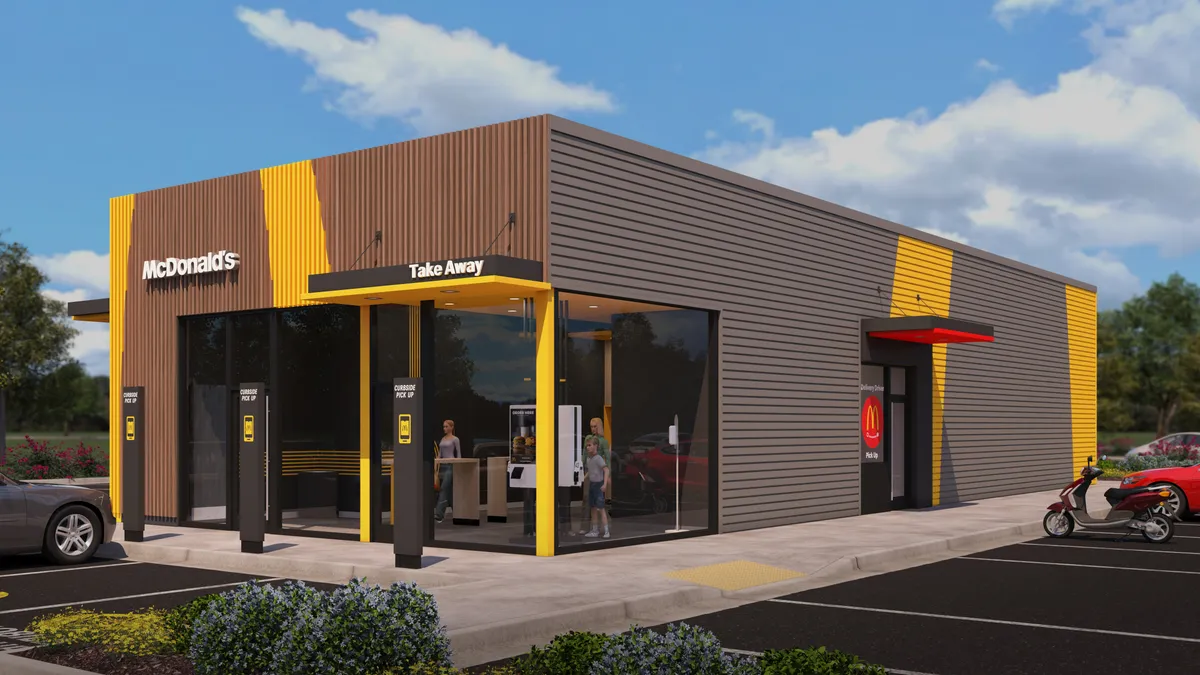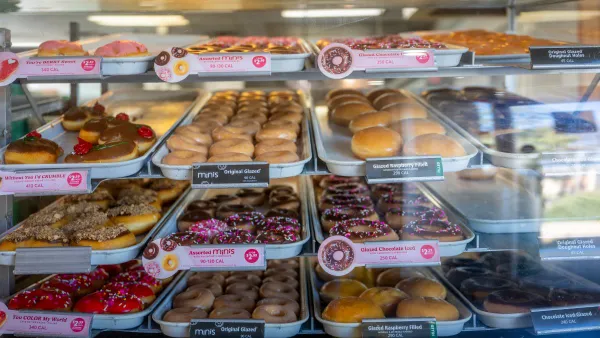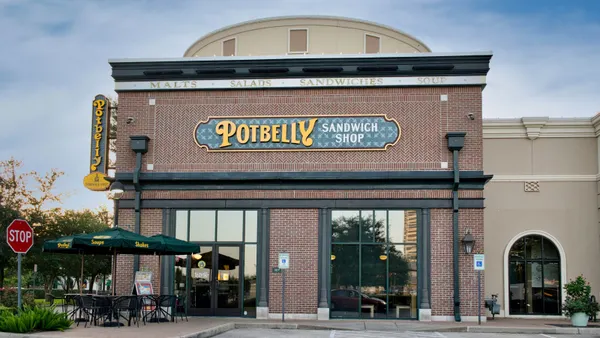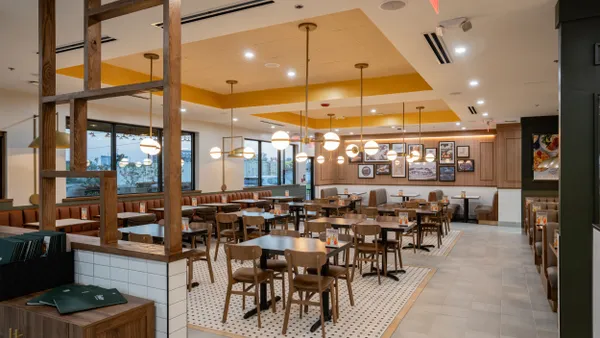Dive Brief:
- McDonald's franchisees are considering forming a technology cooperative that would give them more power over how decisions by the parent company are made, Restaurant Business reports. The National Owners Association board wrote in a note to members this week about how such a group could "monitor and develop better technology ... that works for our customers and crews."
- These discussions follow a $423-per-month technology investment cost added to franchisees' plates to cover what McDonald's refers to as a $70 million "lag" from the old payment structure.
- The NOA's push for control suggests that McDonald's operators and their parent company are on rocky footing once again, just a few months after a Kalinowski Equity Research report found that the chain's franchisees were more optimistic than they have been in years.
Dive Insight:
The NOA notes that despite collaboration between corporate and operators, "the company ultimately controls how our money is spent and what technology gets development," Restaurant Business reports.
McDonald's has certainly been spending liberally on tech initiatives of late. In 2019, for example, the company purchased AI company Dynamic Yield for $300 million, and just months later acquired voice tech company Apprente and established its own tech innovation space in Silicon Valley, called McD Tech Labs. However, the NOA's statement that it wants to form a co-op suggests these investments in artificial intelligence or voice technology may not be top priority for franchisees.
The NOA claims its "unilateral franchisor who seemingly has no regard for its partners" and adds, "If our franchisor needs help financially, let's talk about it."
But as The Motley Fool notes, the company doesn't seem to be hurting financially, generating 10% more income last quarter than the year before. A resolution between operators and corporate is critical, as the company has no plans to slow down its pace of tech innovation. Its recently announced Accelerating the Archest growth strategy, for example, which targets digital and drive-thru innovations and includes a new MyMcDonald's loyalty program expected to launch nationwide next year.
Because of this, franchisors are straining against the company's new technology fees, along with its decision to end the Happy Meal subsidy and to tack on extra costs for franchisees to help fund the Archways to Opportunity program. In total, these costs add up to about $12,000 a year, or about 8% of the average franchisee profit.
That was enough of a financial burden to send franchisees into a protest, voting to cut all "non-essential" contact with corporate. In November, McDonald's defended its decisions, however, stating the necessity of launching new technologies quickly. In a statement emailed to Restaurant Business, the company said, "McDonald's has invested hundreds of millions of dollars in upfront costs to this effect. Our strategy and process for bringing new technology to our system and customers appropriately allows us to move quickly and stay at the forefront of innovation that provides a faster and more convenient experience to our customers."
It's possible that a franchisee-led tech co-op could hinder such a nimble pace, particularly at McDonald's massive scale. McDonald's is positioned favorably in this crisis environment largely because of its tech investments, and several investors are bullish that this position will continue in the long-term because of advanced delivery and digital capabilities. Still, a compromised relationship with restaurant operators could destabilize that position.









